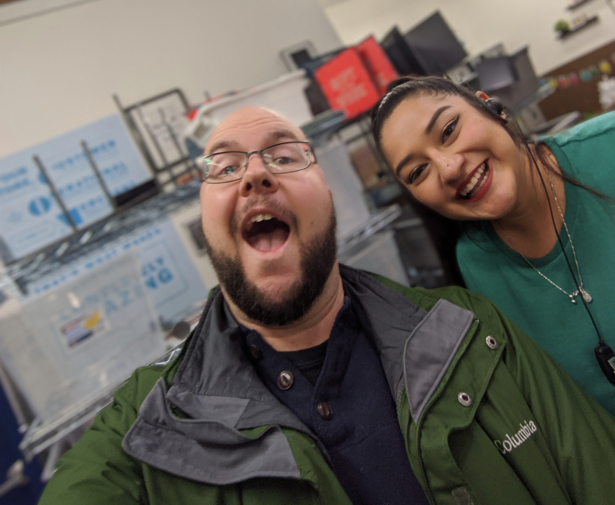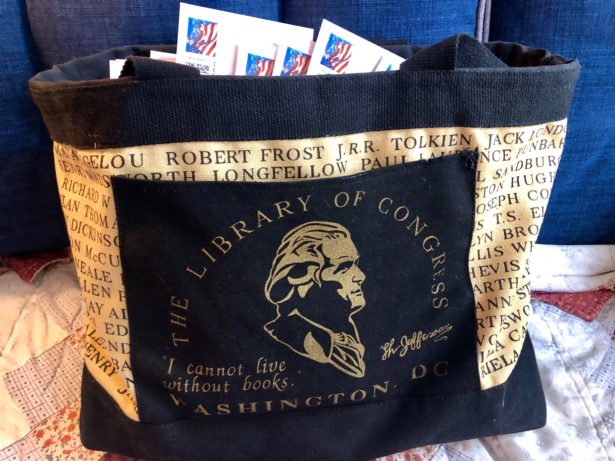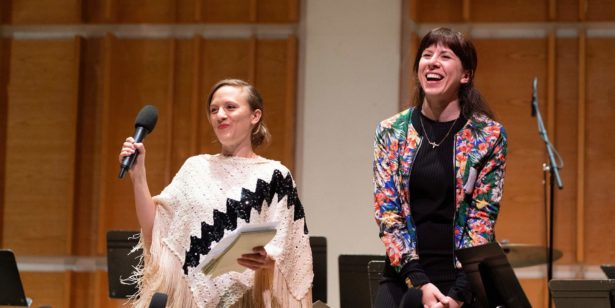
Helping Injured Athletes Hit The Slopes
How one skier is helping people stay on the mountain
A committed skier, Brandon Clarke had been part of the snow sports industry for almost a decade when a bout of depression took him out of the game for many months. As he began to emerge from the darkness, he formulated a plan to ski Washington State’s Mt. Rainier as a way to get back to peak mental and physical condition. He reached out to the High Fives Foundation, a nonprofit organization that provides support to outdoor athletes who have suffered life-altering injuries, to see whether they could help him fulfill his vision. High Fives told him they didn’t normally work with issues of mental health, but they liked the idea, and while they weren’t able to support Clarke’s project, Clarke got something better out of the deal: the opportunity to help others, both through High Fives and through a nonprofit of his own.
As a retail employee of Evo in Seattle, Clarke often handles mismounted skis, which the store sells at a heavy discount or simply writes off as a loss. What if, instead of just discarding the equipment, Clarke thought, the store instead donated the skis to High Fives to use in creating outriggers or sit skis for use by disabled skiers? After a couple of conversations with management, he was able to strike a deal. Clarke’s Evo store in Seattle soon began donating skis to High Fives, and Clarke himself became an ambassador for the organization.
“Once I saw what they had to go through just to get on the hill, that became a big motivation for me to want to help”
“I’m just trying to help keep the cost down for these athletes,” Clarke says. “What’s cool about the High Fives Foundation is that they also donate a lot of funding and scholarships and grants to help these athletes obtain this equipment. If we can help stretch their dollars by giving them part of the commitment, they can facilitate more athletes or better equipment for those athletes.”
Clarke’s own nonprofit, Project 7 Saves, seeks to raise awareness of mental health issues and support athletes who have been affected. “If you were a top-tier athlete and you’re suddenly paralyzed, your whole identity, your community, everything just kind of goes by the wayside,” Clarke told Good Turns recently. “When you’re at the top of your game and suddenly you’re at the bottom, a lot of the stuff you go through can make for a dark day.”
“Through all this I’ve become super passionate about adaptive athletes and adaptive training, and I’ve actually made quite a few friends recently who are sit-skiers or paratheletes or mountain bikers or cyclists,” Clarke said. “Once I had those connection and saw what they had to go through just to get on the hill, that became a big motivation for me to want to help them, to make it as easy as possible for them to obtain gear.”
Hence the ski-donation program Clarke started through Evo. “My story is a little less professional on the athlete side,” he says. “My personal story was, I kind of side-stepped the industry for about two or three years, and that’s when I fell into a depression and didn’t really know what I was doing in life, and wasn’t really participating in sports as much either. So I had to figure out a way to make that happen again for my health and fitness and mental health. That’s where I get a lot of compassion for these athletes. Even though my story is not the same, I know some of the similar situations that people go through.”
Not only has Clarke learned compassion, he has learned to take action as well. For athletes who otherwise might face an early retirement, his good turn is helping them stay on the slopes and in action too. For that, we salute him.
Posted June 29, 2018





